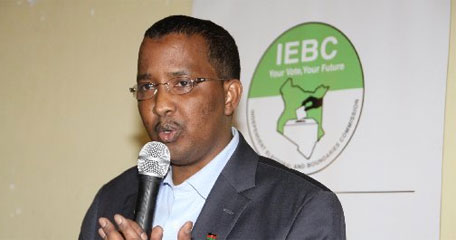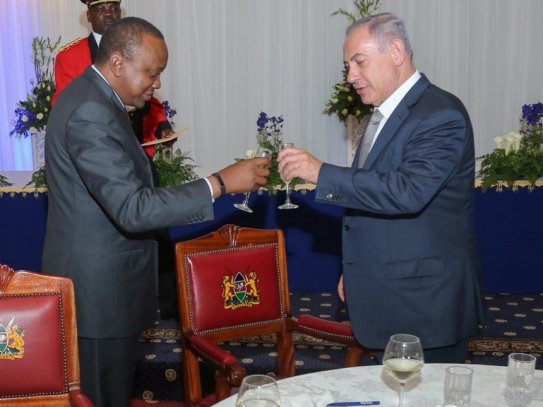By Dr. Bishop David Oginde
As Chief Justice Willy Mutunga took his exit, the matter of his legacy has been on the lips of many. Opinions have been varied, with several at opposite extremes. There are those who have hailed him as the best CJ Kenya has ever had. To this group, Dr. Mutunga has been a revolutionary judge who did not care to conform to the traditional judicial architecture. Accordingly, he helped demystify judicial procedures and practices, thereby making the courts less formal and more user friendly. To this group, and in Mutunga’s own words, the CJ has defended and upheld the new Constitution, often at the risk of his own life and reputation.

He has ensured the independence and integrity of the Judiciary, thereby restoring the face of this critical organ of the state. Mutunga has further decentralized and decongested the court system, thereby bringing justice closer to the people. But, at the other extreme are those who view Mutunga’s tenure as one that did not live up to expectation. To this group, the former CJ has left the Judiciary in disarray. In their view, the drama that dogged the Supreme Court, well up to the dying minutes of his tenure, was an indicator of an institution in disintegration. In fact, this group was perhaps best represented by an editorial cartoon posted in a local daily on Thursday.
According to it, the Judiciary represented by a minibus – has been left hoisted on stone blocks with no wheels, broken windows, and on fire. The passengers are in utter dismay that the driver could take off so majestically in the midst of such a crisis. Interestingly, this is a picture that has been confirmed several times by none other than the CJ himself. Not too long ago, the CJ lamented: “I’m riding a tiger, hoping that the monster will not devour me.” And in a possible sign of frustration he complained: “As long as I fight the cartels and they are protected, you cannot achieve anything. You are taking these people into a corrupt investigating system, through a corrupt anti-corruption system, and a corrupt Judiciary.”
Ahmednasir Abdullahi, a Nairobi lawyer, was even more dramatic as he decried the utter rottenness of the institution. In his view, Kenyans are “saddled with a Judiciary that is rotten to the core, stinking to the high heavens, byzantine and barbaric.” Nothing to be proud of.
It is a fact that the CJ took over leadership at a most critical time for the nation, but especially for the Judiciary. The expectations for judicial reforms were extremely high, especially in view of the much the hyped vetting process that saw many established judges exited from the institution.
The hope was that the new brooms would not only sweep cleaner but also faster. Top in the minds of many was a decisive and ruthless dealing with endemic corruption, in which justice seemed to be dispensed to the highest bidder in the court corridors, registry, and chambers. Sadly, if the CJ’s analysis is to be believed, this tiger seems to have been wounded but not completely slain.
The creation of the Supreme Court was another new feature that raised the hopes of Kenyans. With the said court populated with some of the most brilliant minds – mainly from outside the institution – Kenyans awaited a most robust justice system. Some pundits aver that something did not quite pick up on this front. The squabbles that have led to the almost total collapse of the court may be testament to this.
Several issues seem to emanate from this whole scenario. First is that perhaps the miracles expected were more than one human being could possibly deliver in the short period, especially given the status of the Judiciary at the point of entry. Secondly, we perhaps judged some of the exited judges too harshly. It now appears that if the current judges were to be taken through the same rigor of vetting as their colleagues went through years ago, few would pass the muster.
Thirdly, it is becoming apparent that there still is something about experience that cannot be replaced merely by high educational credentials and social activism. That we preferred men and women, who have never been at the bench to lead our highest courts, may be a matter worth interrogating.
Otherwise, we risk falling into the same trap as we seek to reconstitute the Supreme Court. It would be yet another travesty.
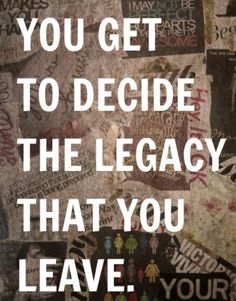


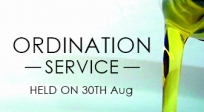


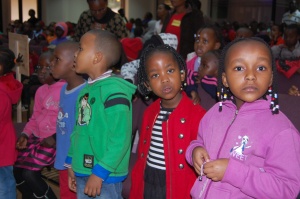









 Does it mean that a religious community is free to set up a socio-economic institution at their own cost, but they have no right to determine the nature or conduct of those that seek to access the services of such institutions? Part of the reason many religious groups set up social amenities such as schools or colleges, is first and foremost to provide social support to the community. Yet, equally important, is the fact that such institutions also serve as centers for the teaching and propagation of values, beliefs, and practices of the sponsoring body. The question that begs therefore is whether such a sponsoring body cannot legitimately expect to enjoy certain inalienable rights incapable of being repudiated or transferred to another. Or does the Constitution actually advocate for the fundamental rights of the proprietors of institutions to cede ground to the rights of those that patronize such facilities?
Does it mean that a religious community is free to set up a socio-economic institution at their own cost, but they have no right to determine the nature or conduct of those that seek to access the services of such institutions? Part of the reason many religious groups set up social amenities such as schools or colleges, is first and foremost to provide social support to the community. Yet, equally important, is the fact that such institutions also serve as centers for the teaching and propagation of values, beliefs, and practices of the sponsoring body. The question that begs therefore is whether such a sponsoring body cannot legitimately expect to enjoy certain inalienable rights incapable of being repudiated or transferred to another. Or does the Constitution actually advocate for the fundamental rights of the proprietors of institutions to cede ground to the rights of those that patronize such facilities?
